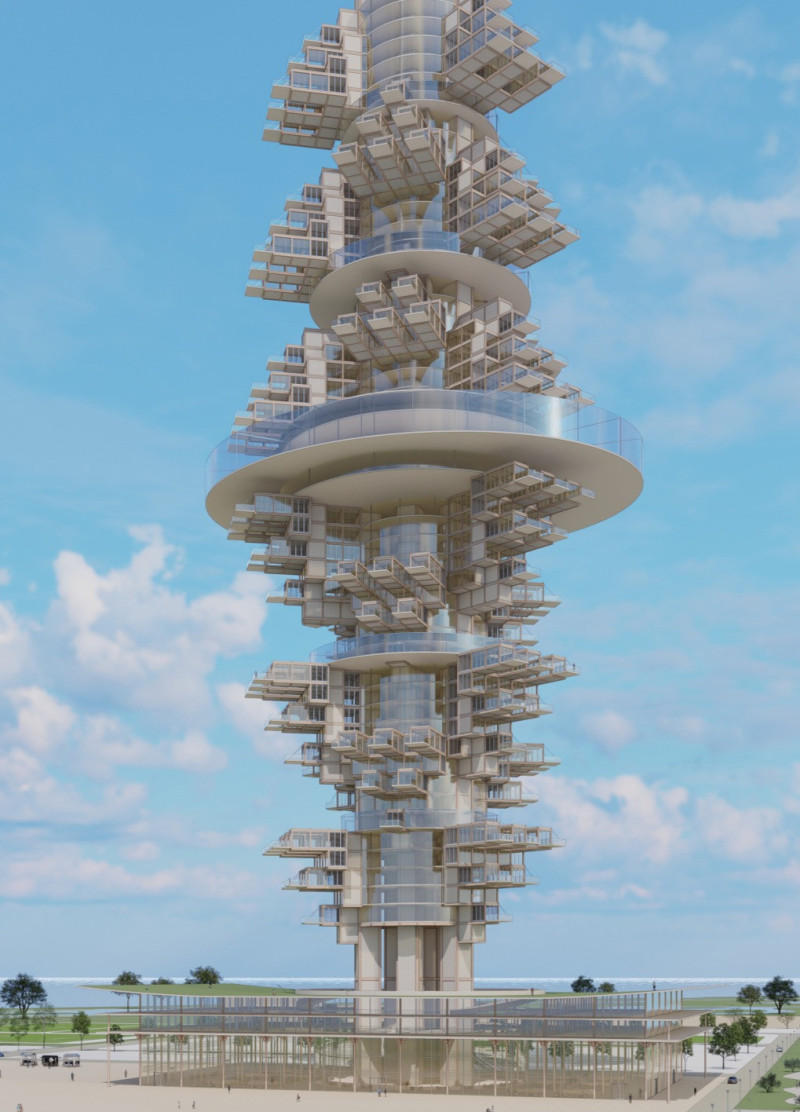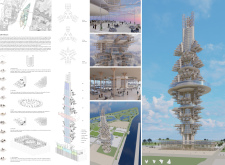5 key facts about this project
Unique Structural Features
One of the project’s notable aspects is its spiral form, which rises vertically and allows for optimized views of the surrounding landscape. The cantilevered design creates outdoor terraces that extend the usable space, while also providing opportunities for gatherings among users. This aspect not only enhances aesthetic value but also promotes a sense of connection with nature, facilitating an interaction that is often missing in urban architecture. The vertical circulation elements, including elevators and strategically placed staircases, ensure accessibility to all levels, supporting a seamless flow throughout the building.
Materials and Sustainability
In terms of material selection, the Wooden Beacon prioritizes natural timber, which serves as a primary structural element, complemented by high-performance glazing for energy efficiency. Reinforced concrete and structural steel beams are also utilized, providing the necessary robustness to support the unique design. The incorporation of composite materials allows for enhanced thermal and acoustic properties, contributing to the building's overall sustainability. The project reflects a commitment to reducing the environmental impact through careful selection of materials and construction techniques.
Community Engagement and Functional Design
The architectural design encourages community engagement through its open public spaces. The ground floor features flexible areas that can adapt to different uses, promoting social interactions among visitors. The observation area at the top, accessible via efficient circulation routes, offers a retreat for users seeking tranquility and connection to the environment. Landscaping elements woven throughout the project integrate natural features, such as water bodies and green spaces, enhancing the overall experience while promoting biodiversity.
For those interested in gaining deeper insights into the architectural plans, sections, and specific design ideas of the Wooden Beacon, further exploration of the project presentation is encouraged.























